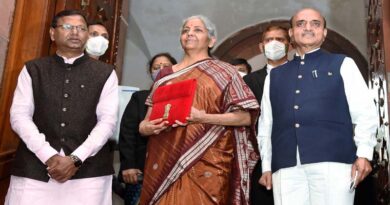Budget 2022 brings in focus on Agriculture sector, agrochemical manufacturing needs more support: CCFI
02 February 2022, New Delhi: Crop Care Federation of India (CCFI) appreciates the government’s effort on the Union Budget 2022 for the agriculture sector. Finance Minister, Nirmala Sitharaman announced various new areas of development in the agriculture sector.
Announcements related to Kisan Drones, Sovereign Green bonds, 2.37 lakh crore MSP for farmers, promoting chemical-free natural farming are all an effort to create sustainable agriculture in India and CCFI supports it, said Mr. Harish Mehta, Senior Advisor, CCFI. However, the industry body feels that a lot needs to be done to improve the agriculture sector, specially the agrochemical manufacturing side to promote Make in India policy of Government towards Atmanirbhar Bharat
The agrochemical sector over the last few years has requested nodal ministries to support indigenous manufacturing in India. The key expectation of the sector from the ministry is the introduction of the Production Linked Incentive (PLI) scheme for the sector and increase in custom duty on imports of formulations. The introduction of the Production Linked Incentive (PLI) scheme will benefit the indigenous manufacturers, reduce dependence on China, incentivise local production and curtailed imports.
The industry expects that custom duty on formulations imports should be increased to 30% to encourage Indian manufacturers which have the capability and capacity to not only meet growing domestic demand but also meet export commitment. CCFI expects that this would be taken during the interim budget session to safeguard the indigenous industry.
India over the course of years has become self-sufficient in food grain production. The Union Minister encouraging natural farming is a matter which needs more research backed by data. The industry body is of the opinion that the level of production and self-sufficiency in food grains that India has achieved over the years is due to use of hybrid seeds, fertilizers and crop protection chemicals. Our member organisations always promote judicious use of chemicals and suggest farmers to adopt sustainable cultivation practices. However, natural farming on a large scale will result in reduced yields















